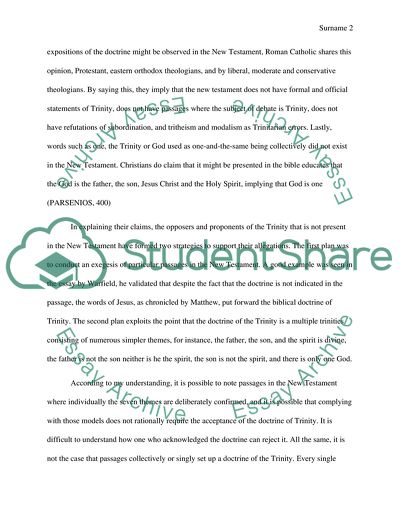Cite this document
(“Outline the development of the Christian doctrine of the Trinity from Research Paper”, n.d.)
Retrieved from https://studentshare.org/religion-and-theology/1683127-outline-the-development-of-the-christian-doctrine-of-the-trinity-from-the-new-testament-church-to-the-nicene-creed
Retrieved from https://studentshare.org/religion-and-theology/1683127-outline-the-development-of-the-christian-doctrine-of-the-trinity-from-the-new-testament-church-to-the-nicene-creed
(Outline the Development of the Christian Doctrine of the Trinity from Research Paper)
https://studentshare.org/religion-and-theology/1683127-outline-the-development-of-the-christian-doctrine-of-the-trinity-from-the-new-testament-church-to-the-nicene-creed.
https://studentshare.org/religion-and-theology/1683127-outline-the-development-of-the-christian-doctrine-of-the-trinity-from-the-new-testament-church-to-the-nicene-creed.
“Outline the Development of the Christian Doctrine of the Trinity from Research Paper”, n.d. https://studentshare.org/religion-and-theology/1683127-outline-the-development-of-the-christian-doctrine-of-the-trinity-from-the-new-testament-church-to-the-nicene-creed.


